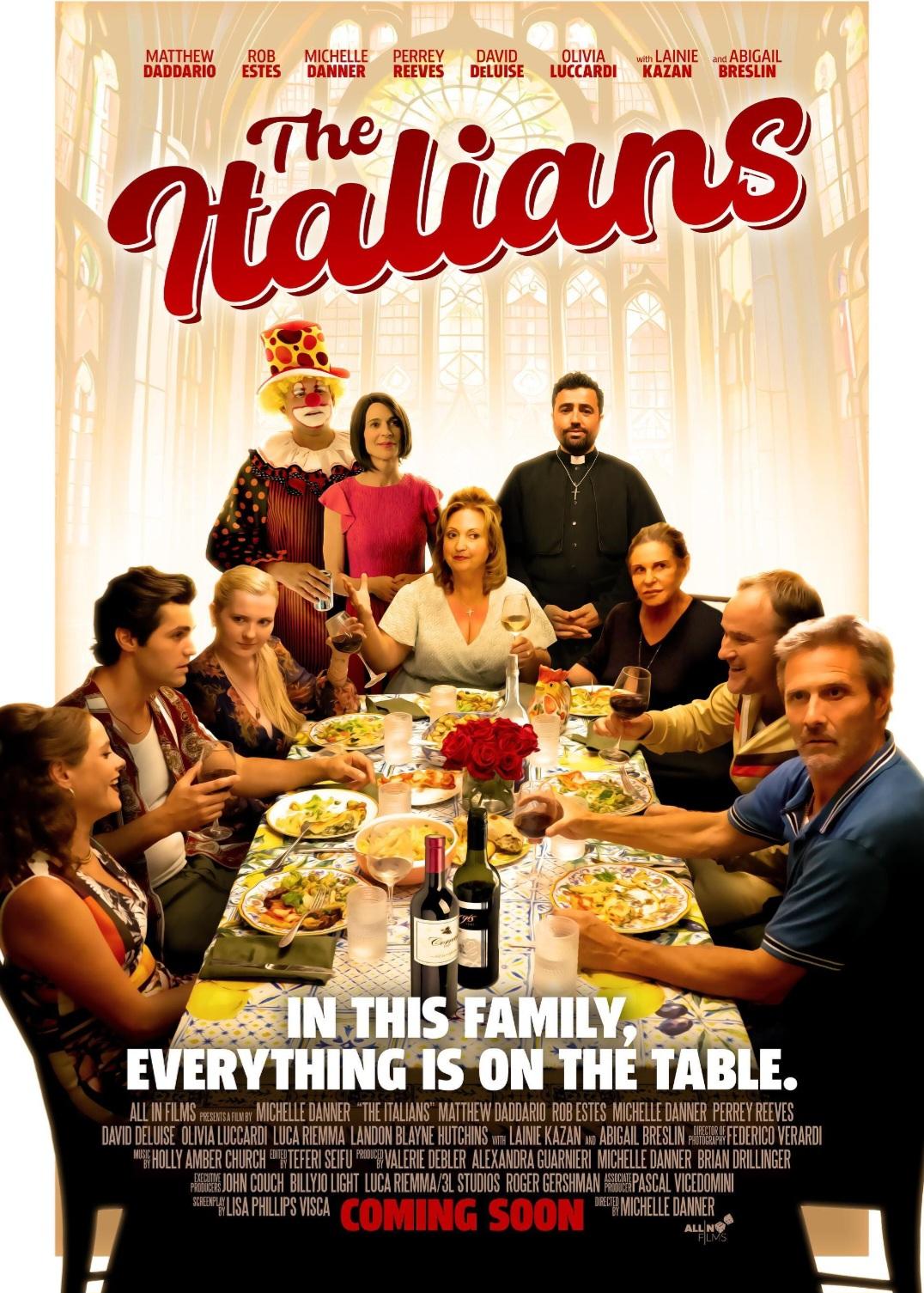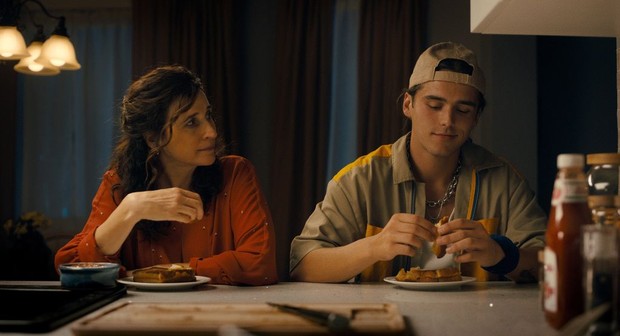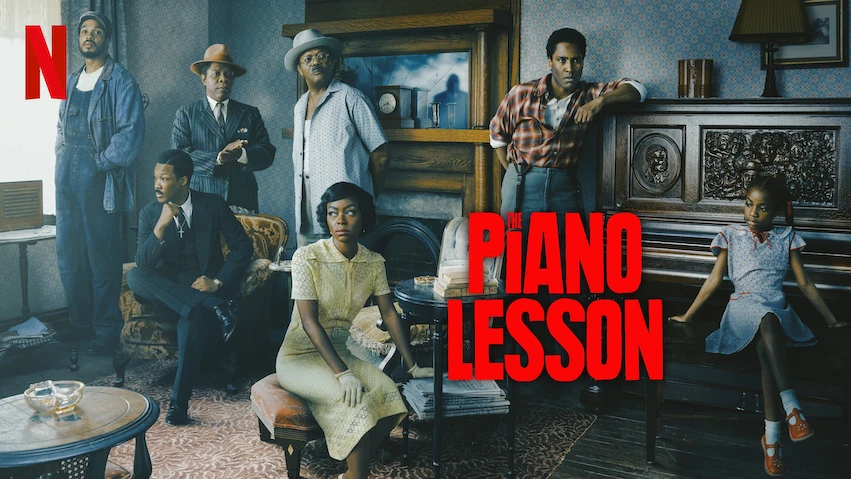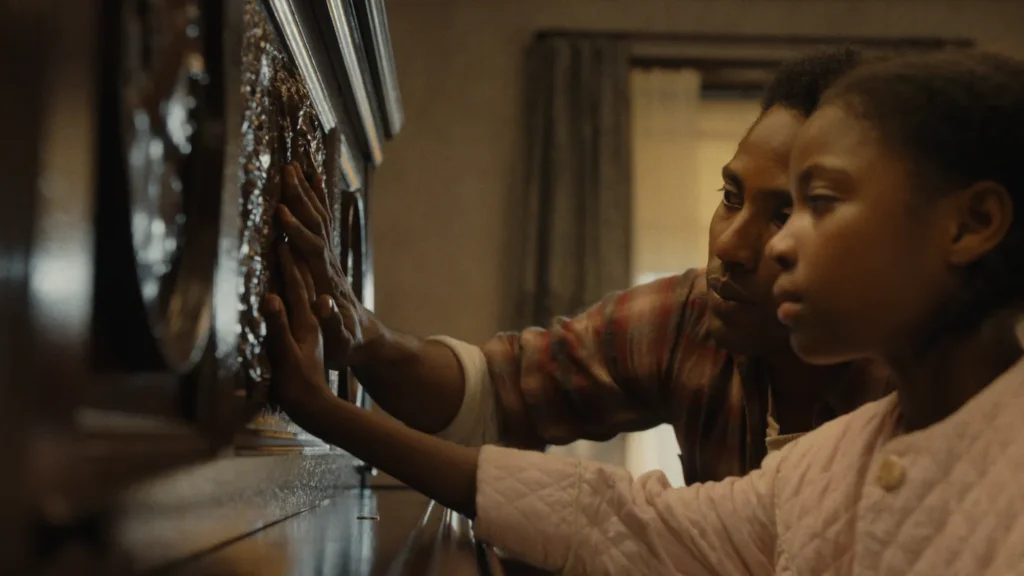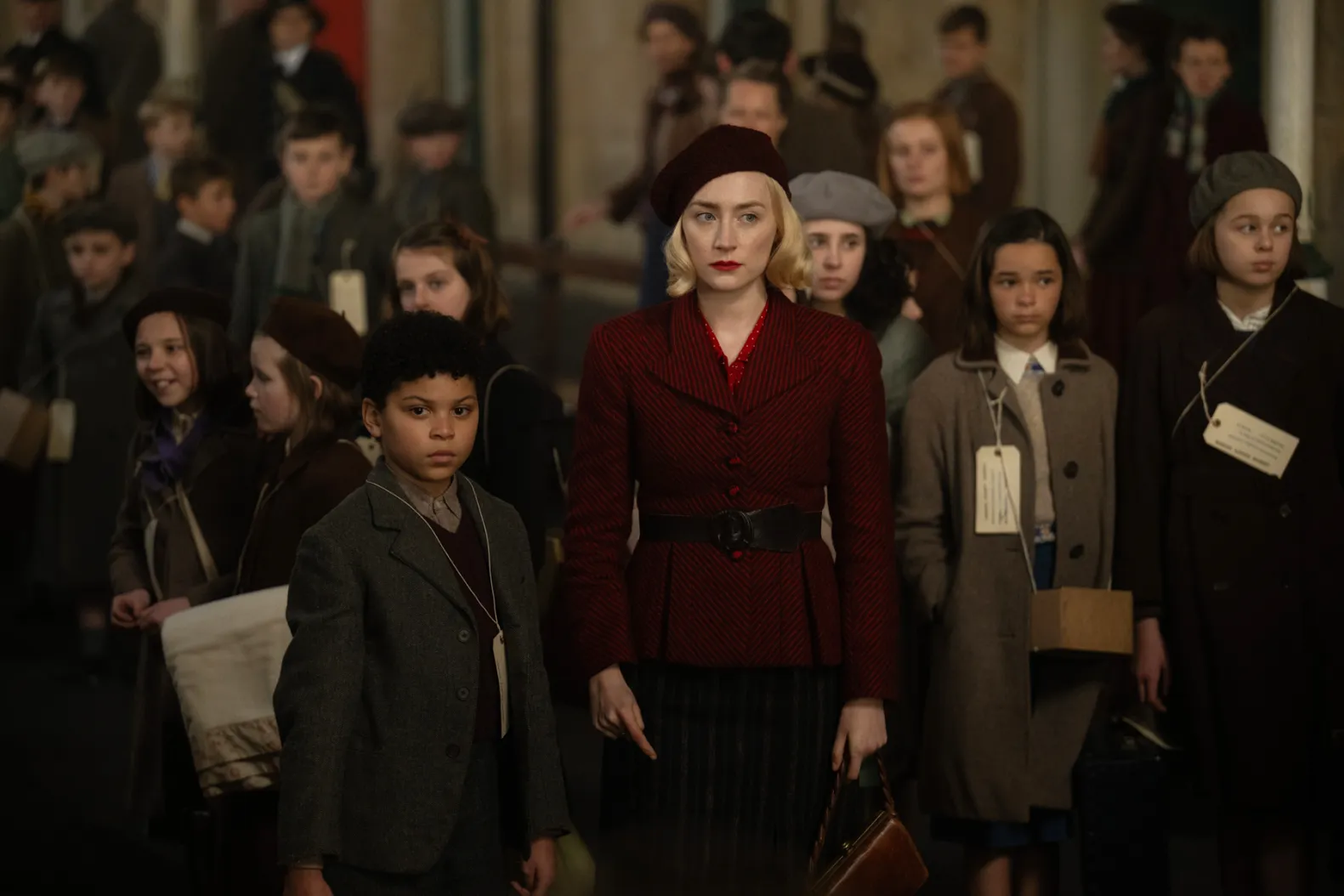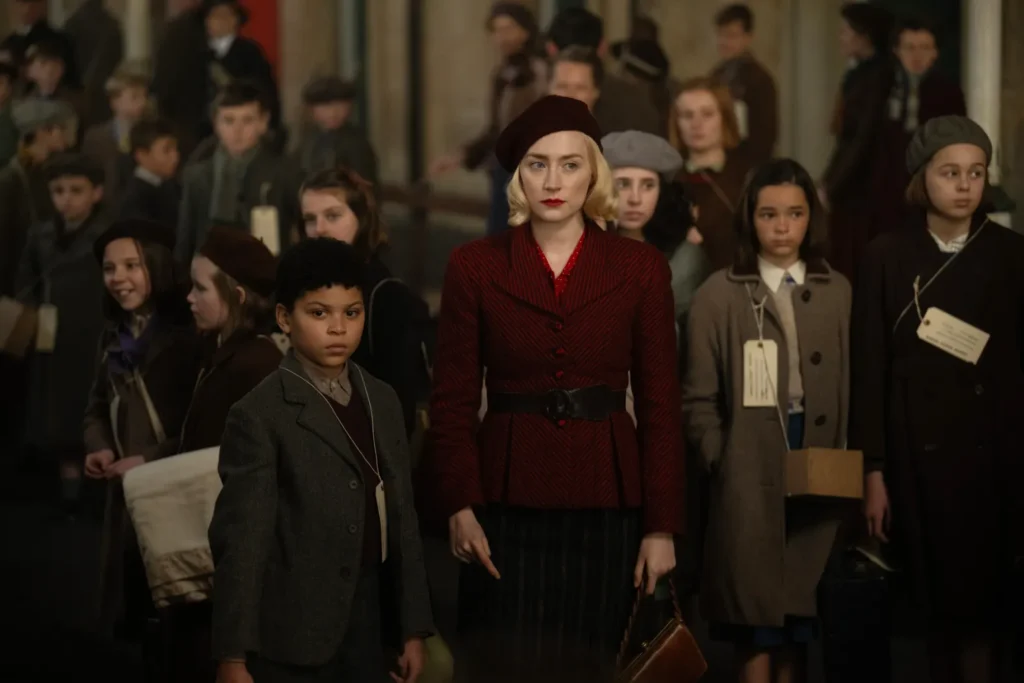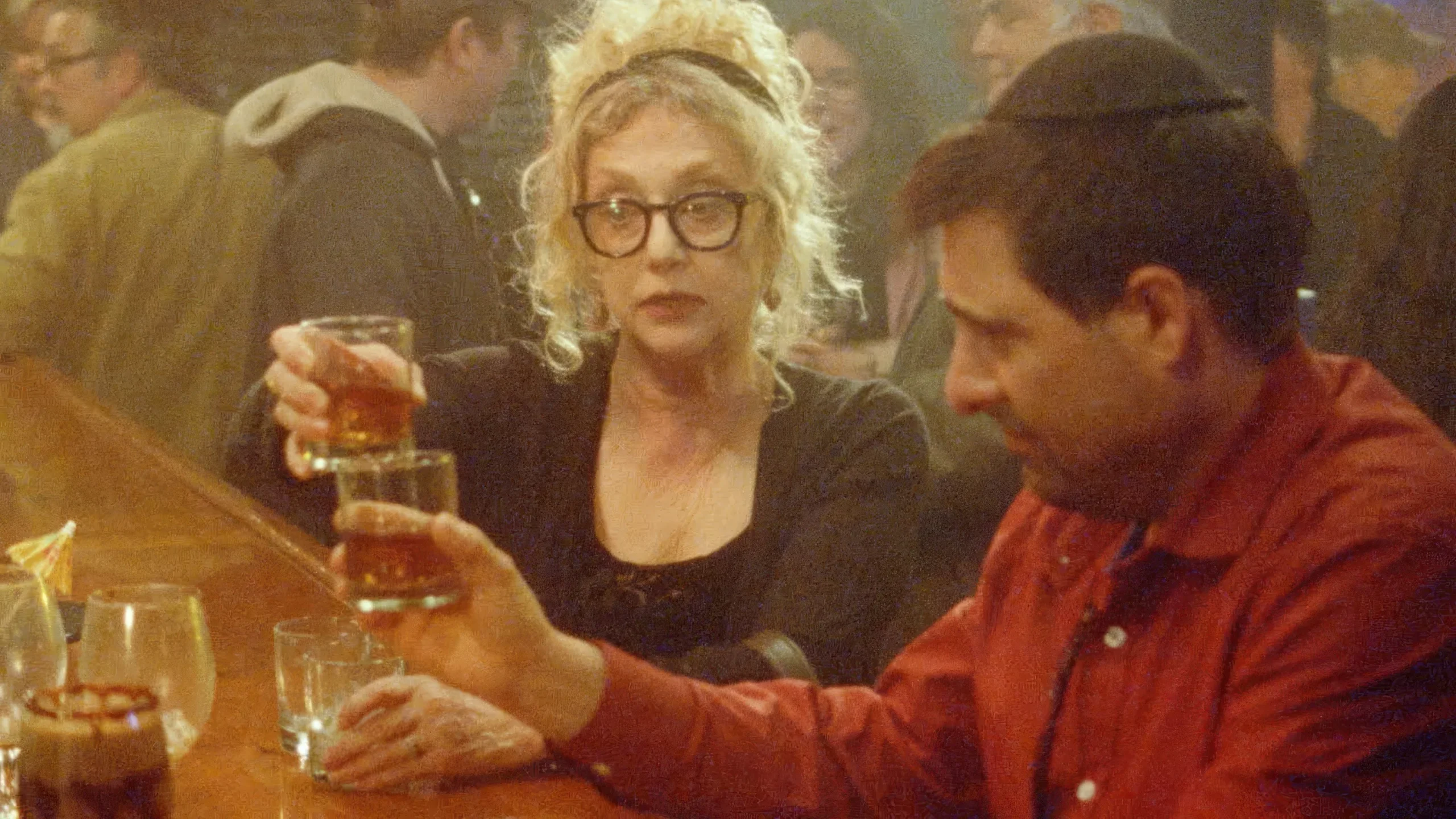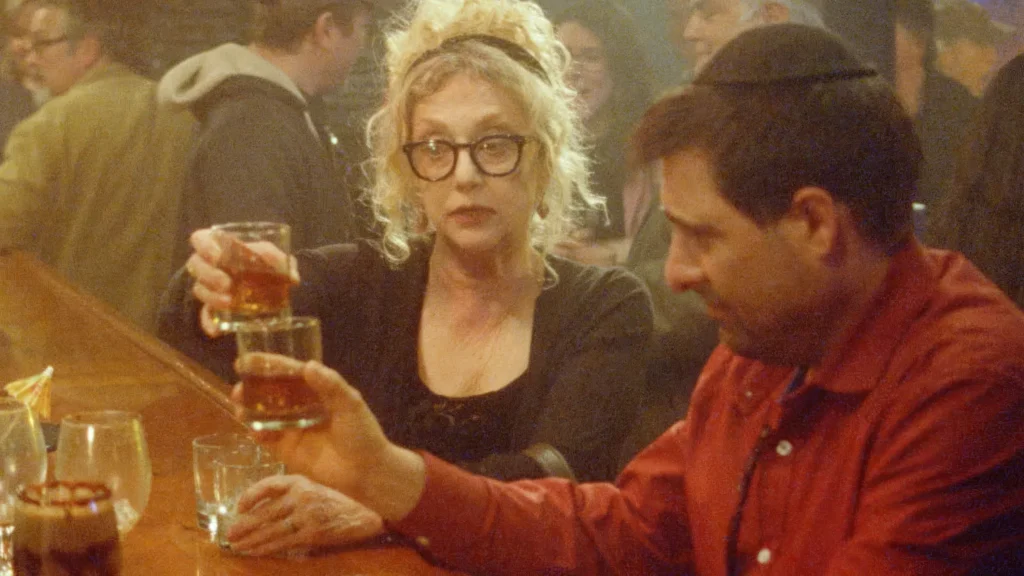The Italians
Posted on April 10, 2025 at 5:58 pm
B-| Lowest Recommended Age: | High School |
| MPAA Rating: | Not rated |
| Profanity: | Some strong language |
| Alcohol/ Drugs: | Alcohol |
| Violence/ Scariness: | A scuffle, sad death |
| Diversity Issues: | A theme of the movie |
| Date Released to Theaters: | April 11, 2025 |

“The Italians” is a messy movie about a messy family. It begins as farce and ends as, well, no spoilers but it ends as something more serious.
Director Michelle Danner stars as Angelina, a middle-aged mother of Nico (Matthew Daddario) and wife of Vincenzo (Rob Estes). She is very Italian. Exaggeratedly Italian. Meaning that she has very strong views and is very open about expressing them: everyone should be Italian, Italians should only marry church-going, previously unmarried Italians who are eager to have babies, and feeding everyone Italian food is much more important than having conversations about feelings or finding compromise. Even her husband calls Angelina sterotypical.
The movie begins with Nico, Angelina, and Vincenzo going to confession with Father Joe (Luca Riemma). They begin to tell him the story we will soon see unfolding, about two family dinners.
The first is when Nico brings his girlfriend, Lily (Abigail Breslin) to meet his parents. She is not what Angelina had in mind. She is not Italian. She is an atheist. More disturbing, she does not eat meat, she has been married before, and she is not sure whether she wants to have children. All of a sudden, a previous girlfriend of Nico’s, known in the family as Geena the Hyena (Olivia Luccardi) for her loud, honking laugh, is looking better. At least, she is Italian. Angelina invites her to the second dinner without telling Nico. Things go even more badly, and Lily leaves in the middle of the meal.
The Italians trailer
We think we know where we are at this point, a relatable romantic comedy about culture clash and family pressure. But even with the flashback from the confession booth structure and the heightened tone, it never captures the rhythms of comedy and lurches when it should zip. The actors seems to be in different movies; their performances are tonally out of synch.
And then the movie shifts in subject and tone to focus on marital issues between Angelina and Vincenzo and then shifts abruptly into sentimental drama. Somehow by that point we still feel connected to the family and the conclusion is genuinely touching.
Parents should know that this film includes discussions of infidelity, family conflict, and illness and a sad death.
Family discussion: Does your family blend more than one culture? If so, did it create any conflicts, big or small? If not, do family members feel pressure to stay within the culture?
If you like this, try: “Moonstruck”

